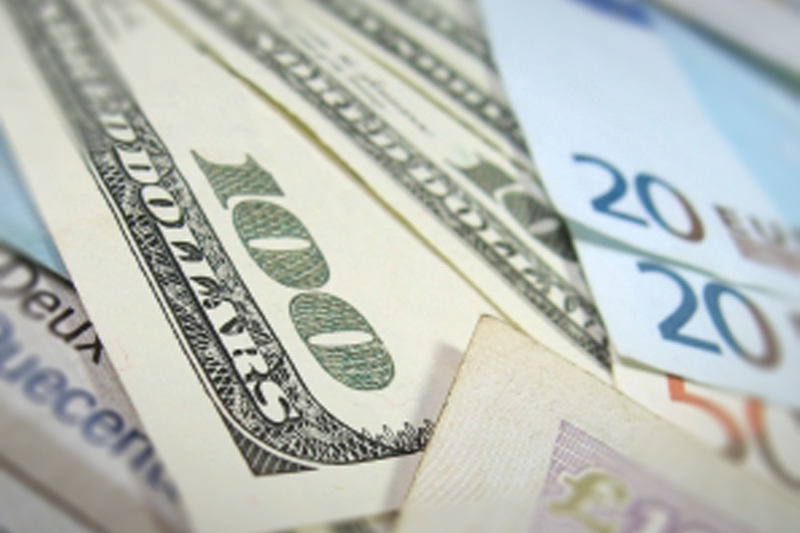Investing.com -- EUR/USD moved lower on Tuesday reversing some of the gains from one session earlier, as investors awaited highly anticipated comments from Federal Reserve chair Janet Yellen, as well as further developments in the Greek Debt negotiations before making any significant trades.
The currency pair ticked down 0.0035 or 0.31% to 1.1250, ahead of the Federal Open Market Committee's quarterly press conference on Wednesday. EUR/USD traded in a broad range of 1.11205 and 1.1329, closing above 1.12 for the eighth consecutive session.
The pair likely gained support at 1.1150, the low from June 12 and was met with resistance at 1.1386, the high from June 10.
While the Fed has indicated that it could raise interest rates following the end of Wednesday's June meeting, it is more likely that the U.S. Central Bank will wait until September before lifting rates for the first time in nearly a decade. The Fed would like to see significant improvements in wage and GDP growth, along with indications that inflation is moving toward its target goal of 2% before it raises its benchmark Fed Funds Rate above its current level of zero to 0.25%. Since its last meeting, the U.S. economy added 280,000 jobs in May while hourly wages rose significantly by 0.3%. Retail sales, meanwhile, a closely watched metric, surged by 1.2% last month, fueled by increases in motor vehicle and gas sales.
Close observers of the Fed will likely focus intently on its Federal Funds Rate Target for clues on how gradually it plans to hike rates after initial liftoff. Previously, the Federal Reserve set a target of between 0.5% and 1.0% for December, which it expects will increase to 1.5 and 2.0% by December, 2016. A year later, the Fed projects its benchmark rate will exceed 3.0%.
When the Fed released the minutes from its April meeting last month, it expressed concern that interest rates could spike after initial lift-off, citing the possibility of an increased role of high frequency trading, decreases in inventories held by broker-dealers and the potential for higher assets in bond funds.
The U.S. Dollar Index, which measures the strength of the greenback versus a basket of six other major currencies, gained 0.13% to 95.22 amid mixed U.S. housing data. In a monthly report, the U.S. Department of Commerce said the number of building permits for future home construction surged nearly 12% to an eight-year high at 1.28 million units. Although monthly housing starts dipped 11.1% to 1.04 million units, the Commerce Department upwardly revised an already robust figure from April to 1.17 million units.
In Europe, there were few developments in the Greek Debt negotiations ahead of Thursday's meeting of the euro zone finance ministers in Luxembourg. Greece is running out of time to strike a deal before the remainder of its €240 billion bailout expires on June 30. Greece prime minister Alexis Tsipras criticized the International Monetary Fund for imposing measures he believes are too stringent. Last week, the IMF abruptly broke off talks in Brussels citing differences in pension reforms, taxes and financing.
"The big contradiction is the IMF's presence, which wants measures and a restructuring, (whereas) the others want measures but no restructuring," Tsipras told reporters. "They want an a-la-carte IMF."
Yields on German 10-Year bunds slipped three basis points to 0.80%, while yields on U.S. 10-Year Treasuries fell five basis points to 2.31%.
